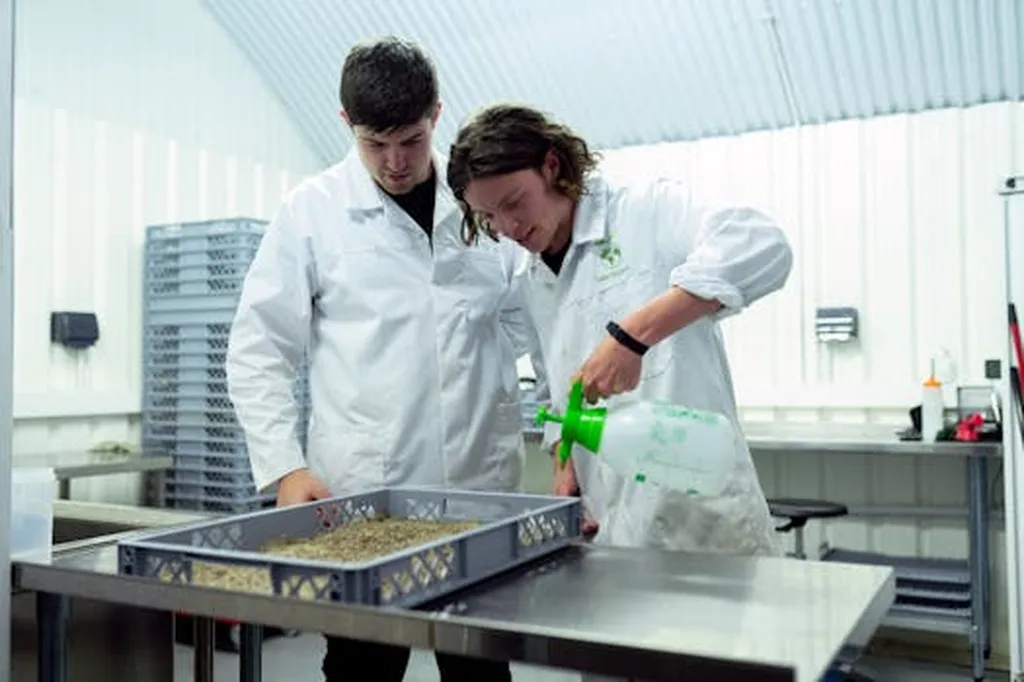In the heart of Egypt’s lush agricultural landscape, a groundbreaking study is reshaping how farmers approach water management in greenhouse farming. Led by Abdelrahman A. El-Sheshny of the Agricultural Engineering Research Institute (AEnRI), part of the Agricultural Research Center (ARC), this research is unlocking new possibilities for precision irrigation, promising to boost yields and conserve water in an increasingly water-scarce world.
The study, published in the Journal of the Saudi Society of Agricultural Sciences (translated as the Journal of the Saudi Society of Agricultural Sciences), leverages the power of the Internet of Things (IoT) to monitor and optimize water use in greenhouse farming. By deploying IoT units equipped with sensors, El-Sheshny and his team continuously tracked air temperature, air humidity, and soil moisture, enabling real-time calculations of vapor pressure deficit (VPD) and canopy temperature (CT).
The field experiment, conducted at the SEKEM Company for Biodynamic Agriculture during the winter season of 2022–2023, compared two irrigation systems: surface drip irrigation (SDI) and subsurface drip irrigation (SSDI) at varying levels of crop water requirements (CWR). The results were striking. “Subsurface drip irrigation at 100% CWR recorded the lowest VPD values, indicating a more stable microclimate for the plants,” El-Sheshny explained. This stability translated into lower canopy temperatures and significantly higher yields, particularly at 80% CWR, where SSDI outperformed SDI by a notable margin.
The commercial implications for the energy sector are profound. As water scarcity becomes an increasingly pressing issue, efficient water management technologies like those demonstrated in this study can reduce the energy footprint of irrigation systems. “By optimizing water use, we not only enhance crop yields but also reduce the energy required for pumping and distributing water,” El-Sheshny noted. This dual benefit makes precision irrigation a win-win for both farmers and the environment.
The study also highlighted the potential for improving water productivity (WP). The highest WP was recorded under SSDI at 60% CWR, suggesting that farmers can achieve more with less. This finding is particularly relevant for regions facing water shortages, offering a sustainable path forward for agriculture.
As the world grapples with the challenges of climate change and resource depletion, innovations in agricultural technology are more critical than ever. El-Sheshny’s research underscores the transformative potential of IoT-enabled precision irrigation, paving the way for a more sustainable and productive future. “This technology is not just about improving yields; it’s about creating a more resilient and efficient agricultural system,” El-Sheshny concluded.
With the publication of this study in the Journal of the Saudi Society of Agricultural Sciences, the agricultural community has a new tool in its arsenal to combat water scarcity and enhance productivity. As farmers and policymakers alike look to the future, the insights from this research offer a beacon of hope and a roadmap for sustainable growth.

